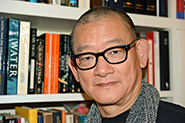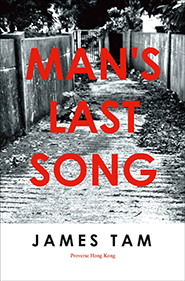Man's Last Song
|
Speaker: |
James Tam |
|
Moderator: |
Dr Gillian Bickley |
|
Date: |
31 March 2016 (Thursday) |
|
Time: |
6:30 - 8:00 pm |
|
Venue: |
Special Collections, 1/F, Main Library, The University of Hong Kong |
|
Language: |
English |
About the Speaker
|
|
James Tam was born in Hong Kong. He lived and studied in Canada in the 70s and returned to Hong Kong in the mid-80s to start his own environmental engineering practice, as well as a software company which subsequently won the premier IT Excellence Award and the HK Industry Award in 1996. In 2008, he realised his long-term plan to leave business before too late, and started to write. He now writes fiction and non-fiction mostly on his blog www.guo-du.blogspot.com. Nearly all his writings are done bilingually in English and Chinese. His occasional poems have received honorary mentions in competitions, and his short stories have appeared in anthologies, the Asia Literary Review, and 香港作家. Being a scientific realist, he’s often mistaken for a morbid cynic because he sees ample evidence that 21st Century Homo sapiens is a delusional and self-endangered species. Nevertheless, he remains irrationally optimistic, happily married, with two lovely daughters. |
About the Book
|
|
In Man's Last Song, the human race faces imminent extinction. The year is 2090. The global population has shrunk to less than half a million; median age about sixty. After forty years of universal sterility, humanity is vanishing while the rest of the planet makes a healthy comeback. A few survivors in Hong Kong, dwelling in the concrete remains of an empty metropolis, face the challenge of adjusting to life as post-modern savages, rediscovering instincts long suppressed by civilisation. To them, life has become a lonely journey of self-discovery in which they find their relationships with nature, each other, and themselves have fundamentally changed. The dilemma, pain and pleasure of love, friendship, compassion, and ageing have been heightened by pragmatic dictates. The unknowable — God, Dao, death, even reality — has assumed new and shifting dimensions in man's dying world. Looking back with fictional hindsight, they find our world — today’s world — absurd, even suicidal. They wonder how Homo sapiens reached this dire situation. While the end looks near, some hang on tenaciously to one thing that has not changed: hope. |



